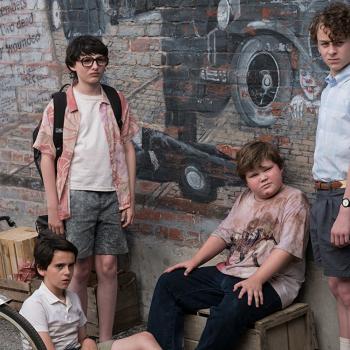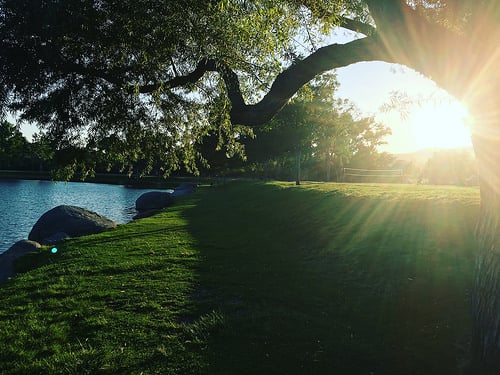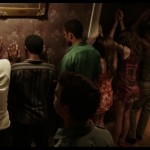 When I first read Cheryl Strayed’s memoir of hiking the Pacific Crest Trail, Wild: From Lost to Found on the Pacific Crest Trail, I was struck by its vivid portrayal of a broken woman who had messed up her life in almost every way she could. I was struck by her humble acknowledgement of her failures–rather than aggrandizing them in some homage to postmodern self-actualization. And I was powerfully moved by her walk from broken woman to humbly-restored woman.
When I first read Cheryl Strayed’s memoir of hiking the Pacific Crest Trail, Wild: From Lost to Found on the Pacific Crest Trail, I was struck by its vivid portrayal of a broken woman who had messed up her life in almost every way she could. I was struck by her humble acknowledgement of her failures–rather than aggrandizing them in some homage to postmodern self-actualization. And I was powerfully moved by her walk from broken woman to humbly-restored woman.
The film version of Strayed’s book is very true to these themes. I appreciate Reese Witherspoon’s commitment to bringing this story to the screen. After reading the book and loving it, she optioned it for film and ended up producing it. Without her commitment, undoubtedly such a true-to-story adaptation would not have come about. However, despite my appreciation for the film as a whole, I struggled with Witherspoon in the lead role. She did a decent job, but I couldn’t help wanting a lead actress with the ability to bring a raw, not pretty messiness to the role in a greater measure.
That said, the rest of the cast is excellent, most notably Laura Dern as Strayed’s mother, Bobbi. And the direction and cinematography are exceptional and evocative, using flashes of potent images from the past as well as entire scenes to convey Strayed’s emotional history and current emotional state. The soundtrack is extremely well-suited to the emotional energy of the film, especially notably Simon and Garfunkel’s “El Condor Pasa (If I Could).” The film’s frequent use of silence or very little speech is also well-suited to the experience of walking through the wilderness. It is artistically one of the best American films I have seen this year.
Here’s how the story goes: Cheryl Strayed grew up with plenty of family dysfunction; her mother experienced domestic violence and, as a child, Cheryl and her brother had to flee the home. Despite her struggles, Bobbi lived a powerful lifestyle of gratitude and joy. She held the family together with her love and warmth. She believed in receiving each day with joy and holding onto that joy for dear life. This did not change when she was diagnosed with terminal cancer at the age of 45. She had been told she had a year to live, but only lived a month. Yet her gratitude for each day remained. When she was finally hospitalized before her death, she still found something to rejoice in. She at last had what she’d always wanted, “a room with a view.”
Despite Bobbi’s acceptance and continued joy in the life she had left, her devastating illness and death left Cheryl in despair. She rages against God, who she declares to not “give a sh–!” She plunges into a life of risky drug abuse and casual sex. Her poor decisions bring about the death of her marriage to a man who genuinely loves her. She finds herself pregnant and unsure of the father. She has an abortion. She is profoundly, profoundly lost. So lost that when she gets divorced, she changes her name to “strayed,” like the verb. It’s a sentence, really: Cheryl strayed. She knows she is lost.
But her longing to “walk herself back to the woman my mother thought I was” propels her into the 1,100 mile-walk across the Pacific Crest Trail. This is more than the triumph of the human spirit. After all, the human spirit of this woman has fallen down and failed herself and her loved ones. She knows she is guilty and broken. She is sorry, but she doesn’t know how to change. She needs to be found. That’s why this film is a journey from lost to found.
As she walks the trail, she must face her own frailty. She must learn how to survive in the wilderness. She must build up physical strength and stamina. She must learn to protect herself. She must learn to be humble. She must face tremendous physical pain. She must be cold and tired and alone.
As I watched this film, I began to think about the Catholic teaching of penance, the doing of something hard at the request of the priest after confessing one’s sins. I began to wonder if the Catholic teaching was so much that we need to do acts of penance to commend us to God, or if the teaching was more that we do acts of penance for our own restoration. So, although my understanding of Catholic theology is limited, I decided to go back and check out the Catechism of the Catholic Church. It seemed to confirm my hunch that penance is more for our own restoration. (Catholic readers may certainly feel free to correct my understanding).
But sin also injures and weakens the sinner himself, as well as his relationships with God and neighbor. Absolution takes away sin, but it does not remedy all the disorders sin has caused. Raised up from sin, the sinner must still recover his full spiritual health by doing something more to make amends for the sin…–Catechism of the Catholic Church (1459)
This idea that doing hard things does not so much do something for God (as if He needed us to torture ourselves to prove that we are really, really sorry), but rather that doing these hard things do much to restore us to wholeness–with ourselves, our neighbor, and even with creation itself.
That’s how I see Cheryl Strayed’s walk “back to the woman my mother thought I was” and her willingness to “put myself in the way of beauty” on the PCT. Maybe she’s partially trying to flagelate herself for her failures. I don’t know. But I honestly think her journey is more about finding wholeness and restoration again. Her mother’s presence haunts the film and left me continually thinking of God’s loving presence, weaving in and out of the scenes of our lives, in the broken places and the filled-with-life places. Wherever we go, like Cheryl’s mother, God says, “I am there.”
Where can I go from your Spirit?
Where can I flee from your presence?
If I go up to the heavens, you are there;
if I make my bed in the depths, you are there.
If I rise on the wings of the dawn,
if I settle on the far side of the sea,
even there your hand will guide me,
your right hand will hold me fast.
If I say, “Surely the darkness will hide me
and the light become night around me,”
1even the darkness will not be dark to you;
the night will shine like the day,
for darkness is as light to you.–Psalm 139:7-12 NIV
God’s gracious presence is everywhere, even in the broken places. When we do the hard things of repentance, we don’t do them so much to torture ourselves and self-flagellate but in order to be restored to wholeness again.
Content advisory: Please note that this film’s vivid depiction of a broken woman includes plenty of coarse language, sexual content, and nudity throughout the film. Sensitive viewers may want to avoid it and read the book instead.
——————-
Community discussion guidelines:
Because this is a Christian blog, the things I’m talking about will obviously be topics that people feel strongly about in one direction or another. Please keep in mind that this is a place for substantive, respectful conversation. All perspectives are welcome to discuss here as long as all can treat each other with kindness and respect. Please ignore trolls, refuse to engage in personal attacks, and observe the comment policy listed on the right side of the page. Comments that violate these guidelines may be deleted. For those who clearly violate these policies repeatedly, my policy is to issue a warning which, if not regarded, may lead to blacklisting. This is not about censorship, but about creating a healthy, respectful environment for discussion.
P.S. Please also note that I am not a scientist, but a person with expertise in theology and the arts. While I am very interested in the relationship between science and faith, I do not believe I personally will be able to adequately address the many questions that inevitably come up related to science and religion. I encourage you to seek out the writings of theistic or Christian scientists to help with those discussions.
———————-
Photo source: IMDB.com. Anne Marie Fox – © 2014 – Fox Searchlight.












